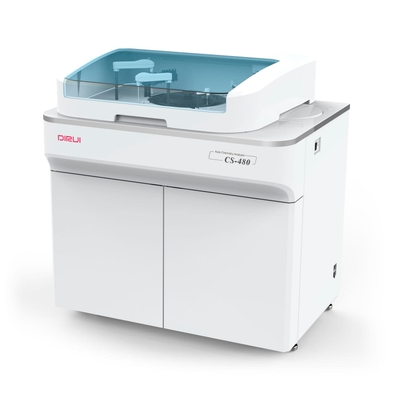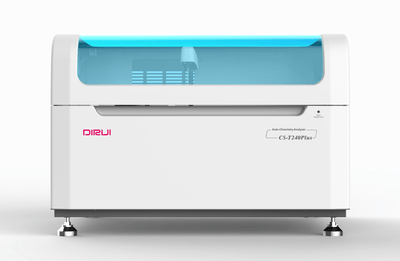- NEW

Sort
Found 12 results
Sort:






.jpg)

.jpg)
-(1).jpg)
.jpg)
.jpg)
A biochemical analyzer is a specialized device used in clinical laboratories to conduct studies of the composition of biological fluids, such as blood, urine, and cerebrospinal fluid. Its main function is to determine the quantitative composition of various biochemical components, such as glucose, proteins, enzymes, and other indicators, which helps doctors obtain detailed data on the patient's condition.
Biochemical blood analysis is a key tool in the prevention and diagnosis of diseases. It allows for screening for early detection of pathologies, clarify diagnoses, monitor the effectiveness of treatment, and identify side effects of drugs. The analysis is based on the determination of biochemical indicators in blood serum, urine, or cerebrospinal fluid, such as proteins, carbohydrates, lipids, enzymes, trace elements, and metabolic products. A change in their concentration signals a violation of the functioning of organs and systems. Modern biochemical analyzers provide speed and accuracy of research, which is especially important for timely response to health problems.
There are several main types of biochemical analyzers, each of which has its own characteristics and applications in medical laboratories:
Each type of device has its own advantages and limitations, so the choice of the appropriate model depends on the needs of the laboratory and the specifics of the research being conducted.
Conducting biochemical analyses has practical application in all medical fields: therapy, gynecology, cardiology, oncology, urology, gastroenterology and others. Biochemistry is of particular value in diseases of the heart, endocrine system, kidneys and liver.
Modern devices are able to automatically perform a number of functions, such as mixing, heating reagents, material research, data processing, calculations and output of results, self-cleaning. To verify the results, Westgard rules are used, which regulate statistical quality control, and the construction of Levy-Jennings diagrams (graphs that include quality control data for visualizing the quality of laboratory testing) is provided.
The analyzers also support the function of automated control of the accuracy and reliability of analyses. Thanks to systems that ensure accurate dosing, the need for additional checks is eliminated. You can order a biochemical analyzer in specialized stores, for example, buy it in the Empirica online store. This site presents various models of devices that can be purchased at the best price.